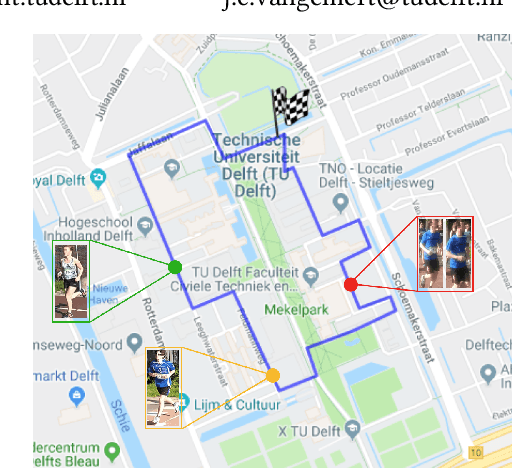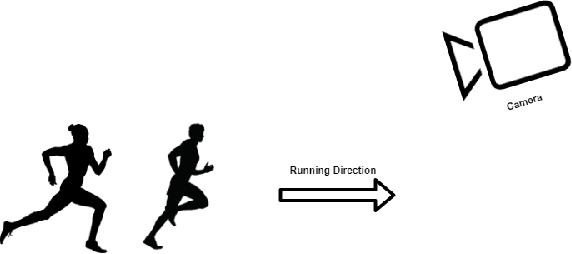Running Event Visualization using Videos from Multiple Cameras
Paper and Code
Sep 06, 2019



Visualizing the trajectory of multiple runners with videos collected at different points in a race could be useful for sports performance analysis. The videos and the trajectories can also aid in athlete health monitoring. While the runners unique ID and their appearance are distinct, the task is not straightforward because the video data does not contain explicit information as to which runners appear in each of the videos. There is no direct supervision of the model in tracking athletes, only filtering steps to remove irrelevant detections. Other factors of concern include occlusion of runners and harsh illumination. To this end, we identify two methods for runner identification at different points of the event, for determining their trajectory. One is scene text detection which recognizes the runners by detecting a unique 'bib number' attached to their clothes and the other is person re-identification which detects the runners based on their appearance. We train our method without ground truth but to evaluate the proposed methods, we create a ground truth database which consists of video and frame interval information where the runners appear. The videos in the dataset was recorded by nine cameras at different locations during the a marathon event. This data is annotated with bib numbers of runners appearing in each video. The bib numbers of runners known to occur in the frame are used to filter irrelevant text and numbers detected. Except for this filtering step, no supervisory signal is used. The experimental evidence shows that the scene text recognition method achieves an F1-score of 74. Combining the two methods, that is - using samples collected by text spotter to train the re-identification model yields a higher F1-score of 85.8. Re-training the person re-identification model with identified inliers yields a slight improvement in performance(F1 score of 87.8).
 Add to Chrome
Add to Chrome Add to Firefox
Add to Firefox Add to Edge
Add to Edge